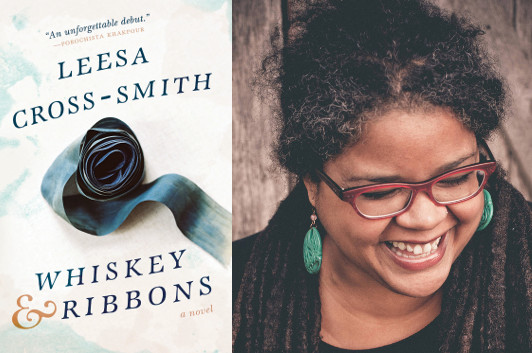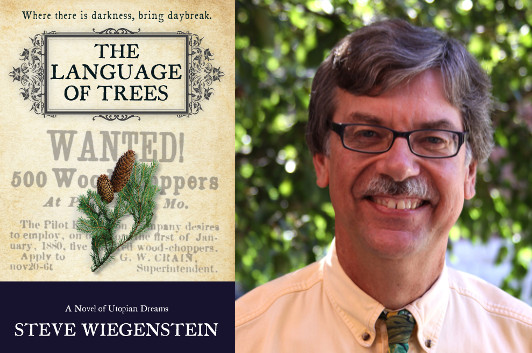Leesa Cross-Smith: Coziness and Comfort

photo courtesy Leesa Cross-Smith
I first learned about Leesa Cross-Smith in late 2017, when she wrote an essay about country musician Sturgill Simpson for Oxford American. Well, really, it was as much about her path to artistic success as it was about his, about the inspiration she drew from his work. And she said: “I got here by writing the stories I wanted to write, by not worrying about where the publishers would put me or if my readers would find me. I trust them. They trust me. They’re smart, and they know what they’re looking for. I may not be easily labeled, but I’m here anyway and it ain’t half bad.”
Well, right then, I wanted to see what she had done. So I asked her publisher about what was then an upcoming debut novel, Whiskey & Ribbons, and I’m here to tell you now: This is the real deal. You want to be in on the ground floor of Leesa Cross-Smith fandom, and this is your chance. Go for it.
I call Whiskey & Ribbons cozy and romantic. I talk often of coziness and comfort, because I am (sometimes) a naturally anxious person. Whenever I find myself worried about someone or something, real or fictional, I like to place them in a comforting spot, imagine things when they are safe and right again. In It Chooses You, Miranda July writes, “All I ever really want to know is how other people are making it through life—where do they put their body, hour by hour, and how do they cope inside of it.” I rewrite things in my head and fanfic in my brain in order to fix sad endings, in order to make them okay. Coping and hope and holding on are just a few things that inspired me to write Whiskey & Ribbons.
Some years ago, a local police officer was shot and killed. His shift was soon to be over or had already ended, but he never made it home. I thought about him and his family a lot. And after 9/11 I watched a lot of interviews with the widows, specifically… the pregnant ones, the ones with small children… I listened to how they spoke about coping, about grieving, about how it felt when their worlds were turned upside down.
8 March 2018 | guest authors |
Steve Wiegenstein: Utopia & Me

photo: Kaci Smart
The Language of Trees is the third in Steve Wiegenstein‘s series of novel about Daybreak, a fictional utopian community in 19th-century Missouri. I’d not come across the previous two, Slant of Light and This Old World, but it doesn’t matter; you’ll be able to dive into the world Wiegenstein’s created and sort out the relationships between the various characters easily enough—and chances are you’ll get hooked by the story of how the community deals with the arrival of a lumber and mining company looking to acquire the natural resources within Daybreak’s boundaries and the surrounding landscape… which makes this a very timely story indeed. (And, he says, there’s already a fourth novel in the works, which will bring Daybreak into the twentieth century.) Here, he talks a bit about some of the historical inspirations for these novels.
In 2006, I awoke one morning with what I thought was a great idea for a novel.
Before I go any further, let me give you some background about myself. I am a longtime teacher at the college level, and over the years have been fascinated by the utopian movements of the 19th century. There were lots of these communities across the United States in the 1830s and 1840s; the Shakers, Brook Farm, New Harmony, Oneida, are just a few of the most familiar names. I also have a background in creative writing, although in 2006 I had not pursued that interest for quite a while.
The idea I woke up with that April morning was to combine these two interests and create a fictional utopian community in the Missouri Ozarks, the area where I grew up, in the years before and during the Civil War. I figured that the clash of a group of idealists with the troubles of the times would provide lots of opportunity for drama. So I started to write, and for the past eleven years I have rarely gone more than two days in a row without spending time working on the books that have grown out of that initial idea.
12 December 2017 | guest authors |

 Our Endless and Proper Work is my new book with Belt Publishing about starting (and sticking to) a productive writing practice.
Our Endless and Proper Work is my new book with Belt Publishing about starting (and sticking to) a productive writing practice. 
